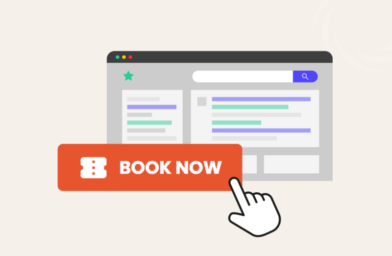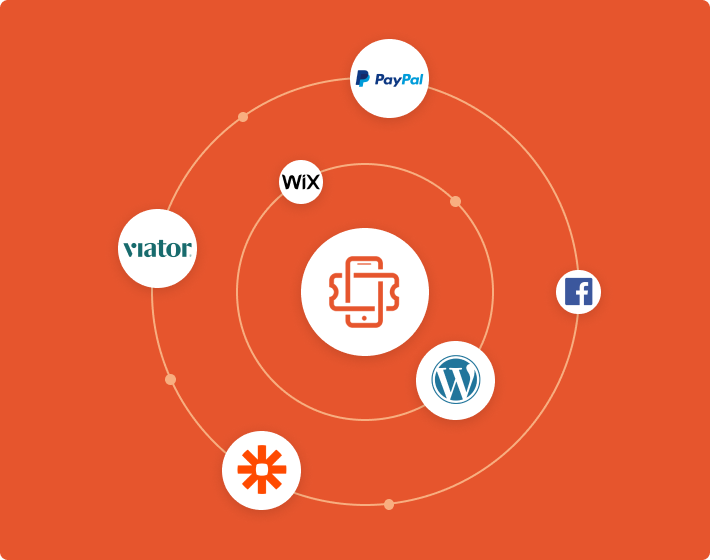Today, as tourists seek memorable and immersive experiences, upselling and cross-selling have become critical sales strategies for tour operators and activity providers. In this article, after providing a comprehensive definition of what upselling and cross-selling are, we’ll discuss the best practices for successfully implementing them in the travel industry. We will also explore the importance of understanding customer preferences and behaviors, the power of customization, the value of bundling, and more. Without further ado, let’s jump right into it!
Understanding Upselling and Cross-Selling
Upselling is a strategy based on the idea of persuading a customer to buy a higher-priced product than they originally intended. For example, if you run a cooking class, you can upsell by convincing your students to upgrade from a group class to a private one.
To implement an upsell strategy, you need to communicate in the most effective way possible why your “premium” tours and activities are better suited to your guests’ needs and preferences than the less expensive options you offer.
Cross-selling, on the other hand, focuses on suggesting complementary or related products and services that will enhance the customer’s experience or meet additional needs. If you run a sightseeing tour company, this might mean offering participants the opportunity to buy or rent a Polaroid camera to take instant photos.

Benefits of Upselling and Cross-Selling
When it comes to upselling and cross-selling, the key is to give your customers relevant and valuable recommendations about what can really improve their experience. You don’t want to spam them with generic marketing messages promoting your most expensive offers or products – far from it! To be effective, your communications must be tailored to the specific needs of each individual guest. It takes a lot of work to get it right, but it will pay exponential dividends for your business, especially in terms of generating more revenue and maximizing customer satisfaction. Let’s take a closer look at the benefits you’ll reap:
- Increased revenue: Upselling and cross-selling can help you generate more profits by increasing the average transaction value. Offering customers the option to upgrade or purchase additional products allows tour and activity companies to capture additional sales opportunities and maximize profitability.
- Improved customer satisfaction: When done effectively, upselling and cross-selling can boost the overall customer experience. By giving relevant recommendations, you show your customers that you are attentive to their needs and can provide customized solutions that exceed their expectations.
- Increased customer loyalty and retention: In the same vein, offering personalized recommendations is one of the most effective ways to build trust with your customer base, which leads to repeat bookings and higher customer lifetime value.
- Upselling and cross-selling as a value-added service: Let’s not overlook the fact that providing tailored (and hopefully thoughtful) recommendations to your customers is a service in itself. This will help position your company as an authority in your field, giving you an edge over your competitors.

Know your customers for effective upselling and cross-selling
We’ve mentioned this concept before, but it bears repeating for emphasis: your upsell and cross-sell strategies will only work if you’re able to give your customers suggestions that are relevant to their unique interests and needs. This can be quite a challenge, but luckily we’ve got you covered. To start off on the right foot, consider spending some time studying the characteristics of your current customer base. We encourage you to follow these steps:
- If you have a database that securely stores your customers’ personal data, you can segment them by demographic factors such as gender, age, and location. If you don’t do it already, make it mandatory for your customers to fill out a form that asks for this information when they make a reservation or purchase a ticket.
- Another effective approach for segmenting your audience is by their psychographic characteristics, such as their interests and values. To keep it simple, you could even just focus on finding out what their hobbies are. To gather this data, you can start by analyzing the reviews your customers have posted on your Google Business Profile or TripAdvisor listing. If you don’t have a lot of reviews yet, you can also ask your customers for feedback by conducting a quick survey onsite – right after they try your service – or with a follow-up email a few days later.
- Before moving forward, consider monitoring the interactions customers have with your various touchpoints, such as your website, newsletter, social media profiles, etc. This will give you better insight into their preferences, as well as help you understand which are the most effective communication channels to drive your upsell and cross-sell strategies.
- Once you’ve collected all this data and information, it’s time to analyze it! You want to look for repeated patterns and commonalities so that you can identify a set of profiles that represent your target audience (also known as buyer personas). For example, you may notice that your tours are extremely popular with middle-aged men who love photography, or that your wine tastings are a big hit with Chinese tourists.
- Important: Don’t waste time creating too many personas, especially if you’re new to them. For most small businesses, 5 are more than enough.
- Also, remember that creating your buyer personas is not a one-time effort; to maximize the effectiveness of your marketing campaigns, you should constantly update your customer profiles with the new data you collect.

Bundles and add-ons: The key to upselling and cross-selling in the experience economy
Once you’ve decided how to segment your user base, collected enough data, and created a set of buyer personas, the natural next step is to understand what could take their experience to new heights. Don’t make this process any harder than it needs to be. More often than not, small additions can go a long way. For example, if you find out that your boat tours are popular with people who enjoy social drinking, you could give them the option to purchase a few bottles to savor during their cruise, or upgrade to a premium tour with a bartender on board!
Once you have a clear picture of what perks would really rock your guests’ world, take a close look at your current offerings to identify products and services that naturally complement each other. To add another example to the ones already mentioned, this could be the ability to buy a hat for people who are participating in a city walking tour. At this point, you’re finally ready to create (and start selling) your bundles and add-ons.
Bundles
Selling bundles is a simple, yet highly effective solution for implementing your upsell and cross-sell strategies. As the name implies, bundles are a curated selection of two or more of your offers sold in a single package, usually at a discounted price. For a walking tour based in Rome, a good package deal might include a tour of some of the Eternal City’s best attractions for your guests to enjoy during the day, and a pub crawl to unwind and relax in the evening. Travelers love bundles not only for the discounts they offer, but also because having a curated selection of activities and places to visit makes it more convenient to plan their vacations. They are natively supported by the vast majority of modern booking systems, which are web-based applications that allow you to sell tickets online, manage bookings, and connect with the major distribution channels, OTAs, and resellers.

With Regiondo, the leading booking software for tour operators and activity providers, creating a bundle is a pretty straightforward process. You just have to write a description for the package, decide on a price, set the number of bundles you want to sell, and select the offers you want to include. If you want, you can even allow your customers to gift bundles to their friends and family! The only limitation is that bundles can only be sold from your website and not through the distribution channels you are affiliated with. For more information, please visit Regiondo’s Knowledge Base.
Add-ons
Like bundles, add-ons are a powerful tool for implementing your upsell and cross-sell strategies. Add-ons include any product, service, or merchandise that complements your offerings and has the potential to enhance your customer’s experience. They can be anything from buying a simple T-shirt to remember the day they tried your amazing activities, to renting a limousine to reach the starting point of your tours. The benefits are similar to those of bundles: add-ons increase your average order value (helping you generate more revenue), while giving customers a variety of options to make their vacation even more memorable.
In Regiondo, you can add your add-ons from the “Merchandising” section; all you have to do is write a description of your goods and services, set a price and decide to which of your offers you want to link the add-ons you’ve created. Click here for more details.

Conclusion
As we have discussed throughout this article, upselling and cross-selling are powerful techniques for not only increasing revenue, but also improving the overall customer satisfaction. By understanding your customers, tailoring offers to their preferences, and making relevant recommendations, you can create memorable experiences that exceed their expectations.
However, it’s important to remember that customer preferences and market dynamics can change over time. As a result, it is critical to continually adapt and evolve your upsell and cross-sell strategies to stay ahead of the competition. By doing so, you can maintain a competitive edge and deliver exceptional value to your clients.
To learn more about Regiondo, the leading reservation system in Europe, request a demo with our experts.





